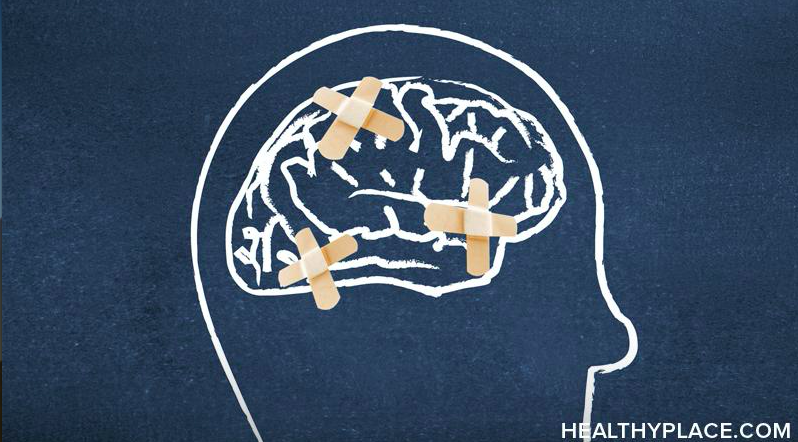Do Not Appropriate My Mental Illness: Your Jokes Aren't Funny
If you want to get on my bad side (for a few weeks, at least), appropriating my mental illness is the swiftest and surest way to land yourself there. When I use the word "appropriate" I mean the seizing and claiming of something for oneself, in this context, a mental disorder.
Appropriation occurs when the thing being seized does not rightfully belong to the seizer. In my experience, the appropriation of mental illness is often used in a joking context, such as someone who is not experiencing suicidal ideations saying, "That test made me absolutely want to kill myself," followed by a laugh. As someone who has experienced suicidal ideations and knows what it truly feels like to want to die, this comment does not provide comic relief. I think of the clients who I work with and those who have lived on the inpatient ward for over nine years due to their ideations and desire to die. They haven't felt the fresh air on their skin in years. I never want to invalidate someone's experience, but pushing through a difficult test does not allow anyone to appropriate the mental illness experience of those who have truly lost their will to live.
Here Is Why I Do Not Like Mental Health Appropriation
By using mental health disorders (which are characterized by the dysfunction they cause) to describe normal emotional reactions, you are not only invalidating me and the experiences of my clients, but you are minimizing our resiliency. You cannot use and claim our experiences to describe understandable and typical discomfort you feel after an event such as a test.
I started going to therapy when I was six and have since been diagnosed with a myriad of mental health disorders, many of which conglomerated over time, resulting in a current diagnosis of generalized anxiety disorder, social anxiety disorder and depression (with a sprinkle of obsessive-compulsive disorder (OCD) and a currently-dormant eating disorder in the mix). If you had told 16-year-old Hannah that she would be alive and managing the symptoms at age 24, she would have scoffed, maybe even tried to pick a fight with you because she was stubborn and willful. However, I feel better than I have in years, and it took me a ton of work and effort to get here. I am proud of my resiliency and will never hide what I have been through to get here; I'm too proud of the fight I have put up.
Still not convinced? Here is another example. Claiming you have OCD simply because you like things to be aesthetically pleasing and organized does not mean you meet the criteria to be diagnosed with OCD. Doesn't everyone enjoy visually pleasing stimuli from time to time? What everyone doesn't experience are obsessive thoughts that you can't relieve through any form of rational thinking, distraction, or willpower. I am talking about obsessive thoughts that make you scared of your own mind, thoughts that lead you to compulsively ask for constant reassurance. This reassurance only relieves your obsessions for a minute before you must ask again.
When you say you are depressed because you finished the last season of your favorite television series, do you mean that you stayed in bed until 5:00 p.m. on Sunday as I did? Did you feel not only your mind but your body shutting down? I could write novels of things I have heard that have invalidated all of those who have fought for their sanity. It is time to realize the power behind your words, especially when you are targeting a marginalized population that has suffered under intense stigma for centuries. Stop erasing our story.
APA Reference
O'Grady, H.
(2019, September 30). Do Not Appropriate My Mental Illness: Your Jokes Aren't Funny, HealthyPlace. Retrieved
on 2026, January 1 from https://www.healthyplace.com/blogs/relationshipsandmentalillness/2019/9/do-not-appropriate-my-mental-illness-your-jokes-arent-funny
